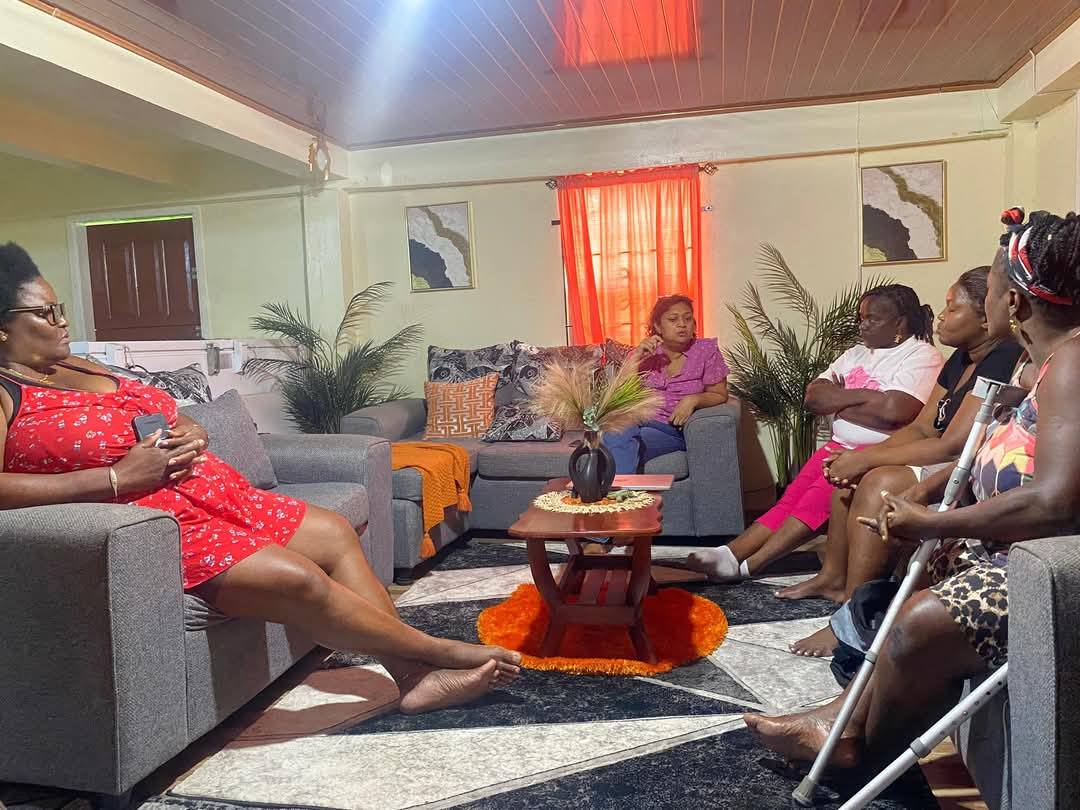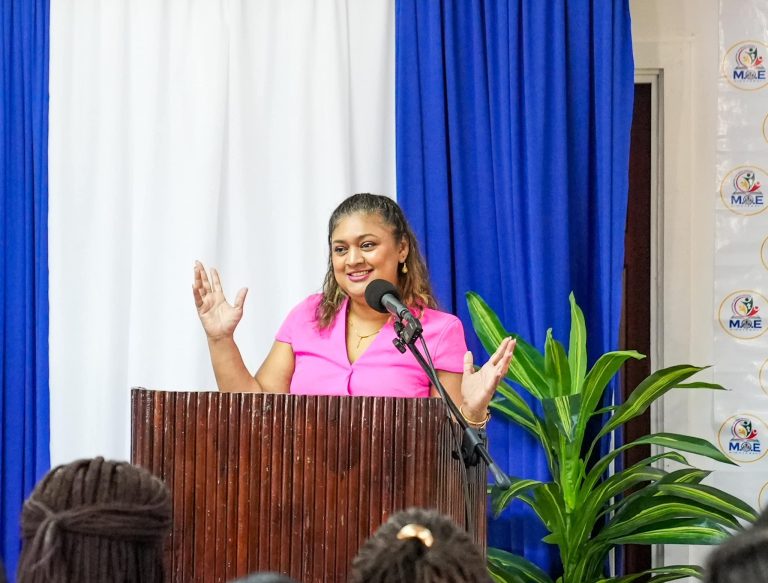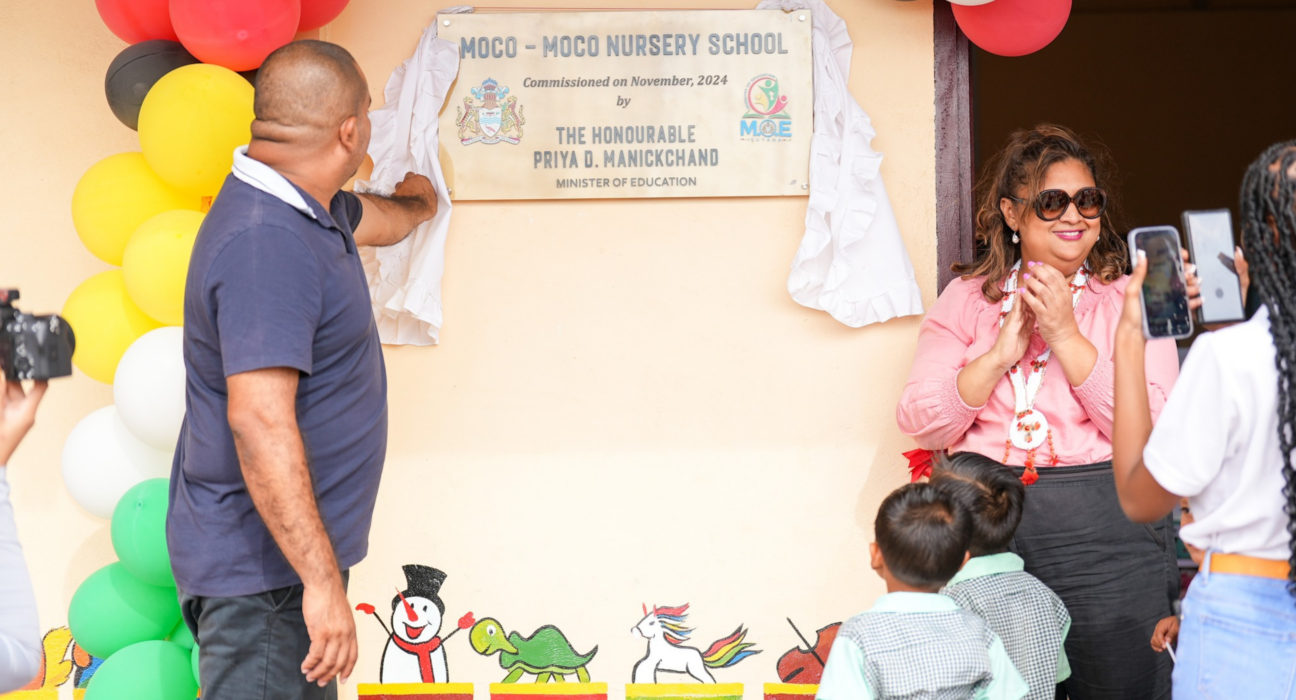The launch of the Men’s Affairs Bureau of the Ministry of Human Services and Social Security is in no way meant to pit men against women, but for them to be complementary in addressing the specific needs of both genders. This is according to President Bharrat Jagdeo who yesterday presided over the launch of the historic body aimed at holistically addressing the needs of men in relation to social problems between the two groups and the root causes as they relate to domestic violence.
Speaking at the launch of the Men’s Affairs Bureau (MAB) at the Umana Yana, the President said that the launch of the body is a very important step “in our country.”
“The trend is that men do not need help. [But] men do need institutions to help them through challenging times…men face a series of unique challenges,” the president said.
According to the President, men working with each other and through a support network could find solutions to those problems without becoming pedantic, or shutting others out.
“We have to mobilise the most effective tools to tackle [the issues affecting men]. We are not in competition,” the President said. “Women must recognise that we are made up differently and we may need special attention, and men themselves in communities can provide that attention,” he said.
He noted that regardless of race and religion, all men have unique challenges that “are the same to all of us.” He said gender is more important than race and religion, since it gives men commonality and unity. Today I urge all of you, as we strive to put men’s issues on the agenda in Guyana, that we use this as an opportunity to reach out to all Guyanese men, because we recognise that we all need to collectively change a tide that is sweeping us…a tide that does not bode well for manhood,” he said. “I speak largely about what happens today to boys in our society. If you look across the Caribbean and in other societies around the world, you see that at a certain age we start losing the boys to all sorts of influences. Because of this, it leads to a whole series of problems that we encounter in life,” he said.
He noted that boys do not receive the same standard of education as girls and that is a huge problem, “because it often leads to the issue of confidence when dealing with partners who are more educated.” He said it is recognised that boys are more often susceptible to the influence of those who are bent on the path to crime. “Often, because of the pressure our society instils on them to provide things in relationships, they feel that they have to get those resources at any cost and sometimes that leads to their exit from formal schooling and sometimes from civilised society,” he said.
The president warned that there is so much pressure on boys in school and in society that the fear exists of the feminisation of young men. “If people don’t have a community of men to turn to for guidance, for male values – and masculine values do not mean aggression, but things that are unique to males — we would succumb more and more to this process of feminisation of men,” said the President.
“There are so many influences out there and we live in an open society…we can’t use prohibition to acculturise our men or to keep them away from some of these influences, because there is some behaviour in our society that may not have been tolerated in a more closed society. But we have committed ourselves to a constitution [that provides for people to be protected from persecution on the basis of their orientation],” he said. “We don’t want every young male child to start thinking that that is ok; I am not going to say the word. If we don’t want them to think that, then we need to start providing a community of men where they can get together and discuss male problems in a strong masculine environment,” he said.
In painting a picture of the challenges men face, the president said that if a man is not able to find a job, the pressures he faces from the society, which expects him to be provider, is significant. “The way we respond to this pressure is not by striking out at the people who may criticise us in the family, or the person who is closest to us,” he said.
Minister of Human Services and Social Security Priya Manickchand, who spoke at the launch, said that gender issues are often mischaracterised as only women’s issues. The minister said that during the consultations for the domestic violence legislation, there was a call for men not to be left out.
She said government recognised that Guyana could not develop at the pace needed, “if we do not pay attention to the needs of men in the country…the partnership between men and women could only catapult Guyana forward.”
Community Development Officer at the Office of the President, Reverend Kwame Gilbert, who also spoke at the launch, said that knee-jerk reactions cannot produce the sustainable transformation needed, hence the need for the MAB. He called for a change in mindset that sees such a body as anti-female, and the bodies set up to examine women’s issues as anti-male. “For anyone to dismiss the importance of the MAB is to have a very narrow perception of the issues,” he said. “We need to move from description to prescription,” he said.
He said domestic violence – another good reason for the establishment of the MAB – depletes the country of human capital, and is therefore injurious to the economic welfare of the country.
The OP staffer underscored government’s and the president’s commitment to supporting the MAB.
Persons who wish to get involved in the work of the MAB are asked to call 227 3497. The administrator of the MAB is Reverend Patrick Findlay.
Source: http://guyanachronicle.com/2011/03/05/mens-affairs-bureau-launched




